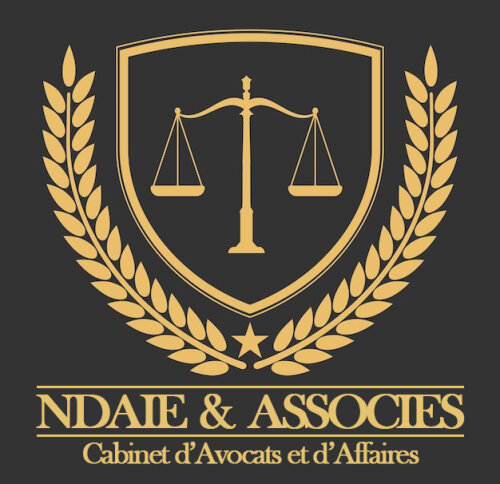Best Banking & Finance Lawyers in Lubumbashi
Share your needs with us, get contacted by law firms.
Free. Takes 2 min.
List of the best lawyers in Lubumbashi, DR Congo
About Banking & Finance Law in Lubumbashi, DR Congo
Banking and Finance Law in Lubumbashi, DR Congo has evolved significantly over the years. This sector is regulated by the Central Bank of Congo which sets guidelines that all financial institutions must adhere to. The laws cover a wide range of sectors including banking, microfinance, insurance, and securities, and were enacted to enhance financial market stability, protect depositors, and facilitate economic development. Additionally, anti-money laundering and financial terrorism laws are becoming increasingly prominent to ensure the financial sector's integrity.
Why You May Need a Lawyer
Whilst dealing with Banking & finance matters in Lubumbashi, you may require the services of a lawyer due to a plethora of reasons. These include navigating complex financial litigation, understanding regulatory laws, and ensuring you or your company comply with them. Lawyers also provide assistance with agreement drafting and negotiation and guide companies through complex financial transactions. Legal help is also beneficial when dealing with tax matters, property mortgages, financial fraud, bankruptcy processes, and if there is a need for dispute resolution.
Local Laws Overview
The key aspects of local laws affecting banking and finance in Lubumbashi include provisions for financial compliance, consumer protection, and anti-money laundering measures. The Central Bank also imposes capital adequacy requirements for banks and other financial institutions to safeguard against the risk of insolvency. There are also statutes in place guiding electronic transfers, secured transactions, and financial collateral. Finally, there are strict regulations against financing illegal activities such as terrorism.
Frequently Asked Questions
What is the role of the Central Bank of Congo?
The Central Bank of Congo provides monetary stability, frames and implements monetary policy, and ensures the smooth functioning of the banking system in the country.
What are the common types of disputes in banking and finance Law in Lubumbashi?
Common types of disputes include those related to loan agreements, unpaid debts, bank liability, and employee disputes within financial institutions. In more severe cases, instances of financial fraud or insolvency can also result in legal disputes.
What are the consequences of non-compliance with banking laws?
Failing to comply with banking and finance laws can result in monetary penalties, restrictions on business operations, and in severe cases, imprisonment. Legal proceedings may also harm the reputation of an individual or a business entity.
Can a lawyer assist with financial transactions?
Yes, lawyers provide crucial legal advice to ensure transactions follow all legal requirements, minimizing the risk of disputes and legal issues in the future.
Why is it important to have legal advice for tax matters?
Lawyers provide key insights into the complex tax structures in Lubumbashi. They help ensure businesses and individuals meet all their tax obligations and take advantage of any benefits or deductions available.
Additional Resources
The Central Bank of Congo is an important resource for understanding banking and finance laws in Lubumbashi. Other institutions like the Congo Financial Services Authority, the Insurance and Pension Funds Supervisory Authority, and the Congolese Bar Association can also provide useful information and resources when dealing with banking and finance law.
Next Steps
Should you need legal assistance with banking and finance law, it would be prudent to consult with a local lawyer who has experience and expertise in the field. The lawyer will help you understand the legal framework, provide advice on compliance with the law, and help in resolving any legal issues that might arise.
Lawzana helps you find the best lawyers and law firms in Lubumbashi through a curated and pre-screened list of qualified legal professionals. Our platform offers rankings and detailed profiles of attorneys and law firms, allowing you to compare based on practice areas, including Banking & Finance, experience, and client feedback.
Each profile includes a description of the firm's areas of practice, client reviews, team members and partners, year of establishment, spoken languages, office locations, contact information, social media presence, and any published articles or resources. Most firms on our platform speak English and are experienced in both local and international legal matters.
Get a quote from top-rated law firms in Lubumbashi, DR Congo — quickly, securely, and without unnecessary hassle.
Disclaimer:
The information provided on this page is for general informational purposes only and does not constitute legal advice. While we strive to ensure the accuracy and relevance of the content, legal information may change over time, and interpretations of the law can vary. You should always consult with a qualified legal professional for advice specific to your situation.
We disclaim all liability for actions taken or not taken based on the content of this page. If you believe any information is incorrect or outdated, please contact us, and we will review and update it where appropriate.
Browse banking & finance law firms by service in Lubumbashi, DR Congo
Lubumbashi, DR Congo Attorneys in related practice areas.











